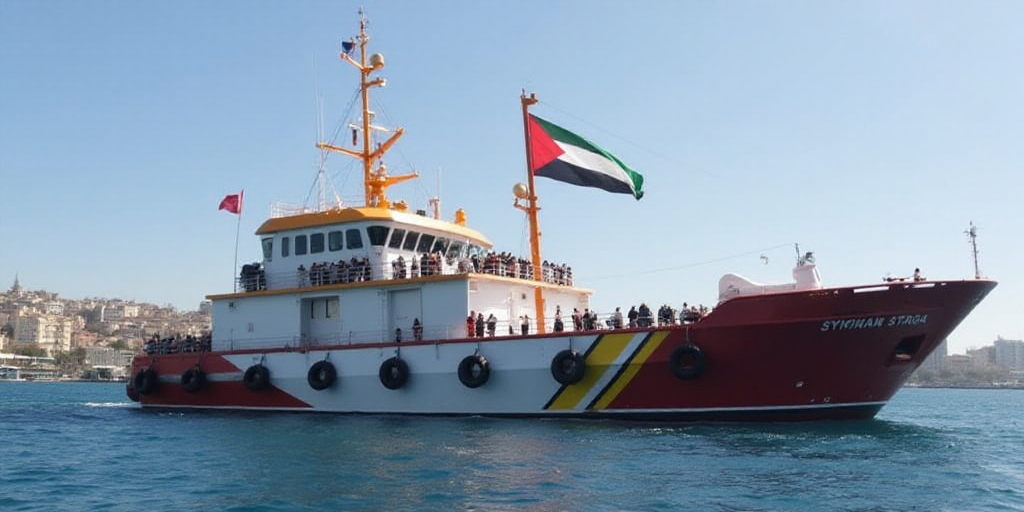Background on the Blockade
Following Hamas’s democratic victory in the 2006 legislative elections and subsequent split from Fatah, many European countries and the United States accepted Israel’s implementation of an indefinite land blockade on Gaza starting in 2007 and a naval blockade beginning in 2009. This acceptance effectively turned an already isolated territory with two million residents into a de facto prison, punishing them for voting for an Islamist party.
The Flotilla and Government Warnings
The Flotilla was warned not to enter the so-called “Israeli exclusion zone” of 120 nautical miles around Gaza, as the rescue ship Furqan could not provide assistance once inside and the activists would put themselves in danger. Despite this, the Flotilla aimed to deliver humanitarian aid and challenge the blockade.
16 Governments’ Communique
Sixteen governments urged Israel to avoid violence and demanded the immediate release of their nationals, whom they claimed to protect diplomatically and consularly. However, none of these governments addressed the core issue: the existence of a naval blockade on an occupied territory.
Prohibitions of a Naval Blockade
Even if we accept Israel’s argument that it has the right to impose a naval blockade under maritime warfare law, the San Remo Manual (1994) clearly states:
- The blockade cannot have the sole objective of inducing starvation or depriving the population of other essential supplies.
- The harm to the civilian population cannot be disproportionate in relation to the military advantage gained.
Regarding disproportionality, it’s evident that the indiscriminate harm inflicted on a highly vulnerable population—comprising mostly women and children, deprived of maritime trade and fishing with a 16-year naval blockade—far exceeds any military advantage Israel could achieve.
Arguments Demonstrating the Blockade’s Illegality
Moreover, there are at least three arguments proving the blockade’s illegality from its inception:
- International Court of Justice (ICJ) Orders: In January, March, and May 2024, the ICJ issued provisional measures under the Genocide Convention, ordering “all necessary food and medical aid” for the “catastrophic situation” of Palestinian people in Gaza. The court also reminded that “conditions of life should not be made so difficult as to threaten the partial or total destruction” of a group, which constitutes genocide.
- ICJ Consultive Opinion: In July 2024, the ICJ concluded that Israel’s continued presence in occupied Palestinian territories is illegal and violates international law, generating obligations for all states.
- Gaza’s Occupation: As part of the occupied Palestinian territories, Gaza’s de facto occupation—evident through Israel’s absolute territorial control and frequent land invasions, peaking in 2023—is also illegal. Consequently, international occupation law (IV Geneva Convention) should apply to Gaza.
- Naval Blockade Incompatibility: Naval blockades are traditionally imposed on enemy or captured states’ ports or coasts. There’s no evidence that states have extended this practice to occupied territories or colonies.
Given the incompatibility between blockade and occupation laws, Israel cannot legally impose a naval blockade while remaining an occupying power. All states, including those with nationals on the Global Sumud Flotilla, are obligated to demand the immediate lifting of Israel’s blockade on Gaza.






